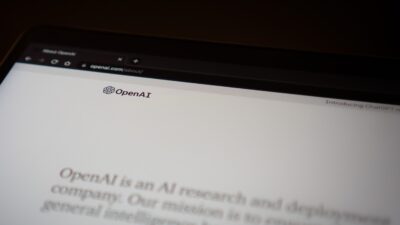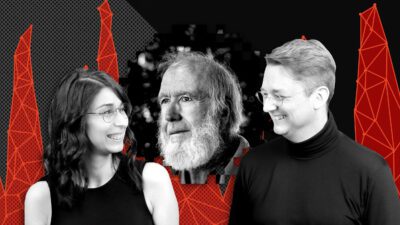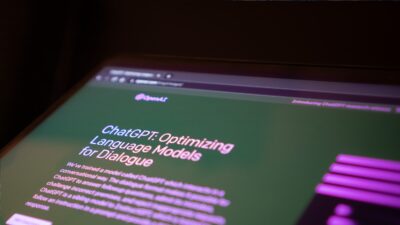
Is Now and Then really a Beatles song? The fab four always used technology to create new music
The Beatles have released a new track - using new technology to strip Lennon’s vocals out of an old demo casette tape. Will this be part of Beatles canon?

AI chatbots are coming to your workplace but are not necessarily coming for your job
Chatbots are proving to be productive and useful but they can be unreliable and make mistakes.

Technology is changing the lives of female lawyers, in ways that are bad as well as good
A new survey finds working from home is removing barriers for women, but also blurring the barrier between work and the “safe space” of home.

VR is transforming how buildings are made
We no longer need to rely on the individual capability of people to read plans or imagine the spaces based on the pictures or verbal descriptions.

Replacing news editors with AI is a worry for misinformation, bias and accountability
Unlike a human editor, AI cannot explain their decisions or reasoning in a meaningful way. This can be a problem in a field where accountability and transparency are important.

Low-code apps: not just for the IT crowd
The pandemic may have turbo-charged low-code awareness, but how will the market grow in the coming years?

Students know AI is here to stay and want unis to teach them how to use it
Students understand there are limitations with ChatGPT, but they know it will have a huge impact on their careers.

The future of generative AI
This week: the speed, visibility and hype of generative AI, and goodbye.

Leading women into digital careers – programming not required
For International Girls in ICT Day, we reflect on a recent Women Leading in Digital event.

How to perfect your prompt writing for ChatGPT, Midjourney and other AI generators
Users are having a blast getting creative with AI generators – but your output is only ever as good as your prompt.

Generative AI and life advice for the future with Kevin Kelly
This week: we talk with Wired Magazine co-founder Kevin Kelly about artificial intelligence, group think, and excellent advice for living.

ChatGPT is a data privacy nightmare. If you’ve ever posted online, you ought to be concerned
ChatGPT is fuelled by our intimate online histories, yet users have no way of knowing which of their data it contains.